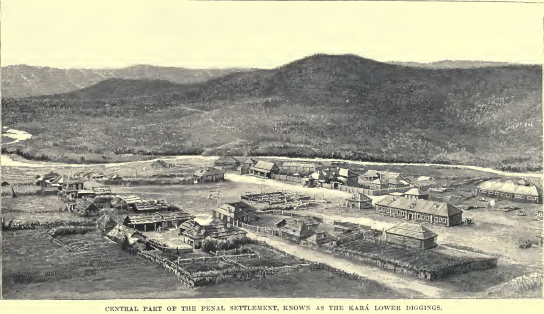Ust-Karsk on:
[Wikipedia]
[Google]
[Amazon]

 Ust-Karsk (russian: Усть-карск), formerly known as Ust-Kara (russian: Усть-кара) is an
Ust-Karsk (russian: Усть-карск), formerly known as Ust-Kara (russian: Усть-кара) is an

 Ust-Karsk (russian: Усть-карск), formerly known as Ust-Kara (russian: Усть-кара) is an
Ust-Karsk (russian: Усть-карск), formerly known as Ust-Kara (russian: Усть-кара) is an urban-type settlement
Urban-type settlementrussian: посёлок городско́го ти́па, translit=posyolok gorodskogo tipa, abbreviated: russian: п.г.т., translit=p.g.t.; ua, селище міського типу, translit=selyshche mis'koho typu, ab ...
in the Sretensky District of Zabaykalsky Krai
Zabaykalsky Krai ( rus, Забайкальский край, r=Zabaikal'skii krai, p=zəbɐjˈkalʲskʲɪj kraj, lit. " Transbaikal krai"; bua, Yбэр Байгалай хизаар, Uber Baigalai Xizaar) is a federal subject of Russia (a krai ...
, Russia
Russia (, , ), or the Russian Federation, is a transcontinental country spanning Eastern Europe and Northern Asia. It is the largest country in the world, with its internationally recognised territory covering , and encompassing one-eig ...
. The settlement is located on the northern bank of the Shilka River
The Shilka (; Evenki: Силькари, Sil'kari; bua, Шилкэ, ''Shilke''; mn, Шилка, ''Shilka''; zh, 石勒喀) is a river in Zabaykalsky Krai, (Dauria) south-eastern Russia. It has a length of , and has a drainage basin of .
, near the mouth of its left tributary, the Kara River
The Kara (russian: Ка́ра) is a river draining to the Arctic Kara Sea in Russia. It flows through the Pai-Khoi Range in the Polar Ural region, and forms parts of the borders between the Yamalo-Nenets Autonomous Okrug, the Nenets Autonomo ...
. Population:
The name of the town means "Kara mouth".
Climate
Ust-Karsk has a pure continental climate and it is the hottest place inSiberia
Siberia ( ; rus, Сибирь, r=Sibir', p=sʲɪˈbʲirʲ, a=Ru-Сибирь.ogg) is an extensive region, geographical region, constituting all of North Asia, from the Ural Mountains in the west to the Pacific Ocean in the east. It has been a ...
. On July 12, 2010, Ust-Karsk set the high temperature record for Asian Russia,. This took place during a massive heatwave felt throughout Russia
Russia (, , ), or the Russian Federation, is a transcontinental country spanning Eastern Europe and Northern Asia. It is the largest country in the world, with its internationally recognised territory covering , and encompassing one-eig ...
and China. In the coldest winters, it can be as cold as .
History
The history of Ust-Kara is closely connected to that of theKara katorga
Kara katorga (Russian: Карийская каторга, Kariyskaya katorga) was the name for a set of katorga prisons of extremely high security located along the Kara River in Transbaikalia (a tributary of the Shilka River, flowing into it at ...
, a network of prison settlements that existed in the area in 1838–1893. Prisoners were used to work gold mines. In the early 1850s, the annual gold production on the Kara was around 70 pood
''Pood'' ( rus, пуд, r=pud, p=put, plural: or ) is a unit of mass equal to 40 ''funt'' (, Russian pound). Since 1899 it is set to approximately 16.38 kilograms (36.11 pounds). It was used in Russia, Belarus, and Ukraine. ''Pood'' was first m ...
(1100 kg).
In the 1850s, during the preparations for the Amur Annexation
The Amur Annexation was the annexation of the southeast corner of Siberia by the Russian Empire in 1858–1860 through a series of unequal treaties forced upon the Qing dynasty of China. The two areas involved are Priamurye between the Amur Rive ...
, Ust-Kara was one of the sites (along with the Shilkinsky Zavod and Bolshaya Kularka) where barges were built for the Russian military
The Armed Forces of the Russian Federation (, ), commonly referred to as the Russian Armed Forces, are the military forces of Russia. In terms of active-duty personnel, they are the world's fifth-largest military force, with at least two m ...
expeditions down the Amur
The Amur (russian: река́ Аму́р, ), or Heilong Jiang (, "Black Dragon River", ), is the world's tenth longest river, forming the border between the Russian Far East and Northeastern China ( Inner Manchuria). The Amur proper is long, ...
.
See also
*Nerchinsk katorga
Nerchinsk katorga ( Russian: Нерчинская каторга, Nerchinskaya katorga) was a ''katorga'' system of the Russian Empire in the area of the , which embraced a large part of eastern Transbaikalia (today's Chita Oblast), near the borde ...
*Nadezhda Sigida
Nadezhda Konstantinovna Sigida (russian: Наде́жда Константи́новна Сиги́да), née Malaxiano () (1862–1889), was a Russian revolutionary, heroine of the Kara katorga tragedy of 1889.
Background
Nadezhda Malaxiano wa ...
Sources
Urban-type settlements in Zabaykalsky Krai {{ZabaykalskyKrai-geo-stub